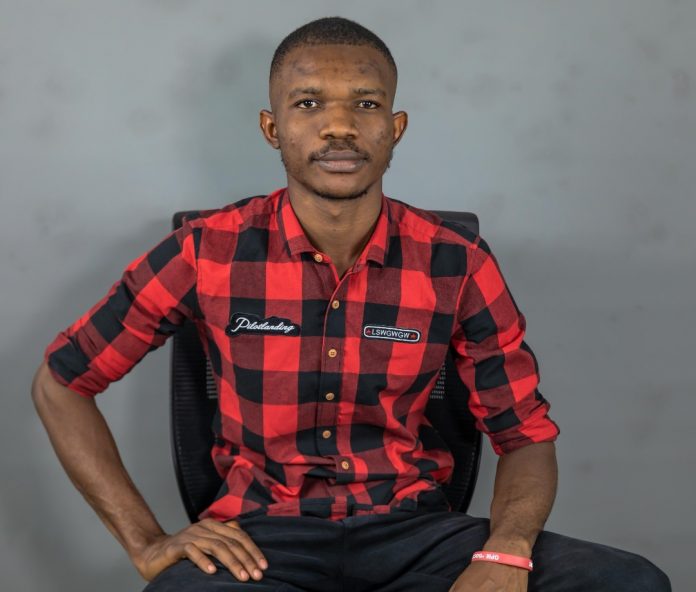
By Benjamin Ajah
The Governor of New York; Andrew Cumo once asked, “How much is a human life worth? The answer is not far-fetched, but amid all the lives we have lost, it is also obvious that the truth is a bitter pill for our society-leaders to swallow.
Sadly we have lost a good number of our youth to police brutality: Kolade Johnson, Emmanuel Egbo, Godgift Ferguson Ekerete, Daniel Adewuyi Tella, Chika Ibeku, Christian Onuigbo, Tina Ezekwe, Modebayo Awosika, Peter Ofurum, Linda Igwetu, Chinedu Ani, Chukwuemeka Mathew Onovo, Johnson Nnaemeka, Steven Agbanyim, Chidi Odinauwa, Ifeoma Abugu, Iloanya Chijioke John and many many others who didn’t make it to the limelight.
The names might not seem like a lot or prominent, but if we are to continue at this pace to the next foreseeable future we will lack adequate human resources needed to build a strong economy, as many young Nigerians will have to migrate to safer countries. This will be a repeat of the transatlantic slave trade-scenario that led to the impoverishment of the West African countries. The West African workforce got shipped to the west to do forced labour in sugarcane and cotton farms with no pay; this gave the western economy a boost. Most of the world’s leading economies today is built on cheap labour while West Africa at the time got underdeveloped due to inadequate workforce and incessant inter-communal conflicts. It’s a major reason we need a youth-friendly nation, else we will keep unconsciously shipping our best minds to other countries and killing the ones that stay back extra-judicially.
Nigeria is a blessed country. Over the years, great scientists and authors have emerged within our people. The most recent groundbreaking feat was that of Dr Oyema Ogbuagbu, an associate professor of medicine and infectious disease at Yale School of Medicine, now globally celebrated for his contributions in the development of one of the first effective batches of the COVID-19 vaccine in the United States. There are so many Nigerians occupying prestigious positions all over the world. Recently, Cable News Network (CNN) issued a report showing that Nigerians are the most educated immigrants in the United States. Many have argued that these young polymaths outside Nigeria wouldn’t have reached the echelon of their profession if they had stayed back—that the police would have killed a good number of them. This stipulation explains a major reason thousands of young talented Nigerians are leaving the country.
The socio-economic significance of the #EndSARS movement cannot be overstated. Among the victims are professional footballers, businessmen and women, artists and many more whose existence contributes heavily to the economic growth of our great country Nigeria.
It is quite unfortunate that the authorities did not receive the #EndSARS protests in good faith, ending SARS and meeting the 5of5 demands is a very crucial step towards making Nigeria a safer place for all. There are lots of things that look trivial but are not. For instance, between the year 1958–1962, the Chinese government ordered the extermination of sparrows under the “smash sparrows campaign”, as a national hygiene measure. With no sparrows to eat them, locusts and other insects swarmed the open fields, causing an ecological imbalance, which led to deforestation, famine and chemical pollution. 15–45 million people died of starvation as a result of this. The Chinese government had to import 250,000 sparrows to replace their population. If the lives of sparrows are this important to the economy of a country, how much more is the life of a human being? What the #EndSARS protest was seeking to achieve is to put an end to extrajudicial killings in Nigeria. If the extrajudicial killings in Nigeria continue, the long-term economic impact will be catastrophic.
This ordeal will also harm bilateral trade as we can not guarantee the safety of foreigners who are here to do business. The reckless and incessant accidental shooting by the police can kill anyone; stray bullets don’t know race, political affiliations, social stratification, gender or tribe. It kills anyone in its way. To attract foreign investments, Nigeria must deal with its police brutality problem and many other vices that can potentially make the country unattractive to foreign investors. Nigeria currently ranks third on the global terrorism index according to a report issued by the Institute for Economics & Peace (IEP).
At the wake of the #EndSARS protests, Judicial Panels were instituted across the country to preside over cases of extrajudicial killings and police brutality. So far, the Judicial Panel of Inquiry has received many petitions from the victims of police brutality and related vices. Nigerians have expressed mistrust in the proceedings, and their misgivings about the way the judicial panel is being run are rooted in the allegedly ill-reputation of the past Judicial Panels of Inquiries. Yiaga Africa, Enough is Enough (EiE), and other civic actors are devoted to monitoring the entire process to ensure accountability and ultimately inspire trust in the government’s commitment to grant justice to victims.
However, the lost lives are lost forever; no amount of financial compensation or litigation can bring back the unique value these individuals brought to the economy. Economists valued a human life to be worth $10 million regardless of social status or hierarchy. Going by this stipulation, the country has lost an astronomically high amount of assets. Despite the said “disbandment” of SARS, eyewitnesses and alleged victims have claimed that they are still operational and extrajudicial killings are still happening.
Nigeria needs its youth in Nigeria, and alive too. Protecting the lives of the hardworking Nigerian workforce is pertinent to the economic growth of the country. I implore the authorities to take the issue of extrajudicial killings seriously or prepare to continue dealing with a crumbling economy in the long run.
Benjamin Ajah is an Innovation Officer at Yiaga Africa
Tweets: @DeMathemaniac
The views expressed in this article are the author’s own and do not necessarily reflect the editorial policy of Sky Daily




































